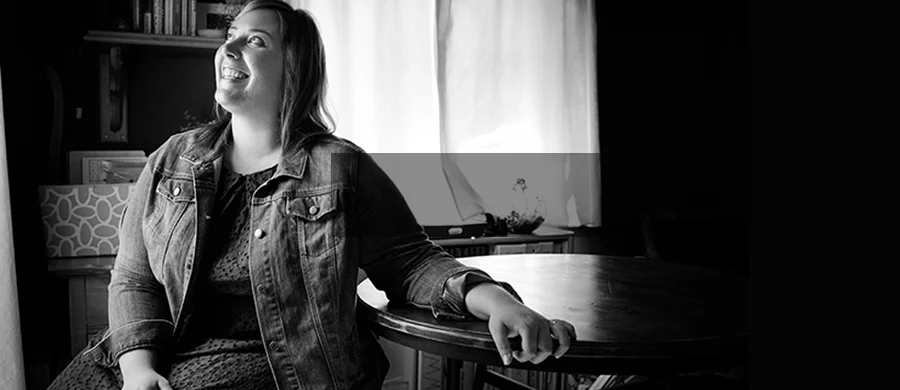You know that feeling you get sometimes when you first wake up? When the heaviness of sleep starts to abate and your consciousness begins to filter through?
That first moment when your brain has to remember where your body is before it can grapple with why your body is?
It’s been twenty-five days since we were ordered to shelter in place. Each morning when I wake up there’s a precious moment of normalcy before I remember. Twice I’ve woken up on days I was supposed to fly to California, unable to shake the parallel universe feeling, unable to stop looking at the clock as the day progressed, all like but-I-should-be-on-a-plane-right-now.
Tomorrow is my third ghost flight. I will pack a ghost bag and kiss my husband and walk around my neighborhood with him, which is a thing we are still allowed to do. I will look up at the sky for planes. I will think about how things exist outside the bounds of space and time.
Shelter is a word that comes to us from Old English. It’s in Volume 4, on the philodendron, which glorifies the family of the word endurance. My math teacher gave me that plant. I had asked him for a plant because I wanted one for the word exponent but when he picked philodendron the word had to change.
Sometimes it be like that. Words change.
Last weekend my husband and I were on the couch in the morning drinking coffee. My feet were in his lap. We were listening to the radio. We listened to an interview with a priest in New York City tasked with trying to connect dying people with their families via video conferencing. His voice grew thick when the interviewer asked if the inability to exchange physical touch was making his work more difficult.
The priest replied in the affirmative. He said that in his line of work touch is a way to communicate when there are no words. He said, “but now words are all we have.”
The denotation of the bound base <dure> in the word endurance is “hard.” Shit is hard right now, sheltering in place. Every day I think about how it could be so much harder. How maybe it will. The truth is none of us know.
My math teacher had never taught a class online until the shelter in place order. I’ve spent seven years flying down to Oakland multiple times for something like 578 hours of class (or whatever nerdtastic number I am at) and now suddenly I am taking class in my kitchen, my teacher the big rectangle video and my math friends fragmented into tiny individual rectangle videos.
Here we are, together but apart. Look at us technology.
Technology is in Volume 2. I put her on a variety of tree that is often cultivated as a bonsai. I try to be funny. I usually fail.
Technology is a compound, which is to say it has two base elements. The first is <techn> and it has the sense of “art, skill, craft.” The second is <loge>, which denotes “speaking, science.” My favorite part of the greater <techn> family are actually the distant Latinate cousins that come from the same root, words like text, textile, pretext, context, texture. Tissue is a delightful lexical doublet.
The idea of carefully and purposefully arranged threads is present throughout this word family. We even get the word “toil” which rolled through French before coming into English, and is not the same “toil” meaning “hard work” but rather the “toil” that means “net or snare” because those were items that required fine weaving. Adding the diminutive suffix <et> gives us toilet, because etymologically one’s toilet was a finely woven cloth on which one might lay out one’s clothes, hair brush, and other dressing items.
Perhaps this is the connection everyone was making when they decided to fight each other for toilet paper a few weeks ago. I really can’t say. Some mysteries are never solved no matter how much technology you have access to.
Other mysteries, like how to teach polynomial long division, are solvable. Do you have a kitchen and an internet connection and an insatiable desire for truth? Do you mind taking math classes on weekends? Are you okay with taking notes until your hands ache and hosting the entire class in your personal Zoom room?
Technology is capable of weaving us together and shrouding us apart, two sides of the same tapestry, woven together so tightly sometimes it’s hard to see the individual threads from a distance.
But when you look closely you can see the threads are actually made up of words. Millions and millions and millions of words: spoken, typed, exchanged, gathered, treasured, saved, understood, rejected.
Maybe the priest was right. Maybe words are all we have.
